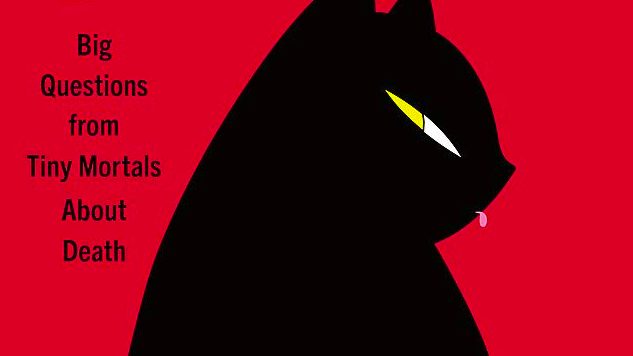Will My Cat Eat My Eyeballs? Makes Death Less Ominous

Will My Cat Eat My Eyeballs? is Caitlin Doughty’s response to our greatest fear: death. By answering questions asked by children, the mortician gently lifts the funeral veil throughout her new book. In telling you why you cannot keep your parent’s skull, why cremated bones make crappy jewelry, why your cat is more likely to go for the lips than the eyes, Doughty applies a welcome levity to the subject.
 The answers can be disgusting or hilarious or both. Harsh reality—like the explosive release of gases or the rendering off of flesh—is shellacked with something approaching sweetness. Doughty’s passion and care are evident, and each answer is an opportunity to make death less alien, less mysterious and more…endearing? Learning the science behind a body’s decomposition, for example, removes some of the horror and replaces it with something resembling beauty in the continued life after our death.
The answers can be disgusting or hilarious or both. Harsh reality—like the explosive release of gases or the rendering off of flesh—is shellacked with something approaching sweetness. Doughty’s passion and care are evident, and each answer is an opportunity to make death less alien, less mysterious and more…endearing? Learning the science behind a body’s decomposition, for example, removes some of the horror and replaces it with something resembling beauty in the continued life after our death.
Aided by Dianné Ruz’s somewhat shocking illustrations, rendered in an odd mix of Aubrey Beardsley and anime that becomes more appealing the more lurid the scenario (the titular question involves a skeleton dangling an eye for a playful cat to bat, and one could scarcely imagine a more pleasing illustration of postmortem bowel release), every one of Doughty’s answers serves as a charming guide into something we take enormous pains to avoid. In demystifying through humor, fear begins to fade; perhaps death isn’t all that bad when we find relevancy in death’s inevitability, not despair.
You’ll begin to picture yourself lying against silk, coffin half-closed, by the time it dawns on you that you’re less afraid of death than you were a day ago—or even a paragraph ago. Doughty’s intimacy with death makes the book, guiding you deeper into the topic without bringing along the weight society places on it. Even children can read the text, so long as the subject matter alone isn’t enough to unsettle them.
Everyone who longs to cheat death will eventually end their quixotic fight in the grave. What Doughty offers is a better way: to understand the end to come. The charm of this particularly macabre author is the best way not to fear the reaper.
(You will, however, still want to remain among the living for as long as possible.)
B. David Zarley is a senior staff writer for Freethink and essayist, book and art critic. His writing has been features in The Atlantic, The Verge, Jezebel, VICE Sports, Frieze, Hazlitt and numerous other publications. He lives in Chicago.







































